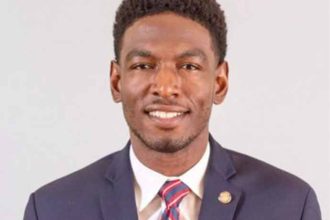VIDEO EXCLUSIVE: Center For Constitutional Rights’ Vince Warren On Fighting Trump’s Muslim Ban
The Center for Constitutional Rights is a progressive, nonprofit organization that provides legal and advocacy support to people who have been oppressed in some form or another.
The group’s executive director, Vince Warren, specializes in discriminatory policing, Muslim profiling and other forms of racial injustice. Warren spoke exclusively to uPolitics at the Netroots Nation 2019 convention in Philadelphia last month about combatting the Muslim travel ban implemented by President Donald Trump‘s administration, among other issues.



 Click here for the Top Democrats Running For President Against Trump In 2020 Slideshow
Click here for the Top Democrats Running For President Against Trump In 2020 Slideshow









Leave a comment